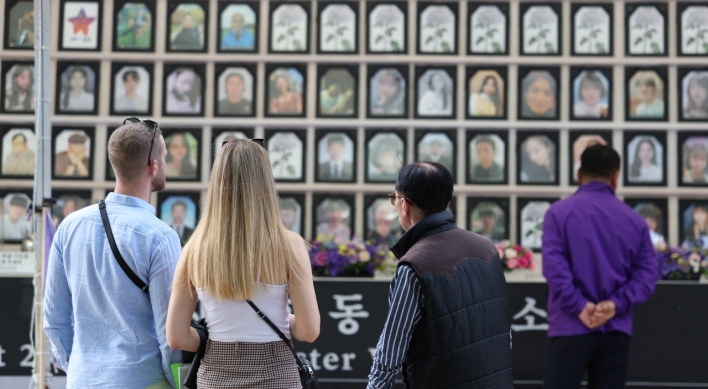Child bearing, domestic responsibilities affecting women's careers: data
By 임정요Published : Nov. 20, 2016 - 13:09
South Korean women on average stay less at one job compared with men, mainly due to breaks in their careers caused by child bearing and other domestic responsibilities, official data showed Sunday.
According to employment insurance data compiled by the Korea Employment Information Service, the average time a woman stayed at one job stood at 3.4 years as of 2015, more than 2.1 years shorter than the 5 1/2 years of her male counterpart.
The findings are not different from information collected in 2005, when the average male worker stayed at one job for 5.2 years, compared with three years for female employees.
At the same time, government and society have been pushing to help more women land careers. In 2015, there were 10.96 million women with jobs, up more than 205,000 from the year before and significantly higher than the 9.52 million employed in 2005.
Starting in 2013, the number of women finding work exceeded that of men.
"In effect, despite the passage of time and greater role of women in the workplace, the difference in how long a woman stays at her job vis-a-vis a man remained fixed at 2.1-2.2 years," KEIS said.
It said child bearing and taking care of the family, as well as greater emphasis on women managing domestic duties despite being employed, is forcing many to leave work.
Analysis also showed that while men generally stayed longer at a job after passing 40 and into their 50s, the reverse was true for women.
On average a male worker between 50-54 stayed at his job for 9.4 years, while the corresponding number for women stood at four years. This number is even lower for women between 35-39, which stood at 4.6 years.
Yoon Jeong-hye, a KEI researcher, said that while state policy has helped women become more involved in work, disruptions in their careers are causing many to quit. This, she said, could lead to lower job security for women as a whole, which needs to be addressed. (Yonhap)







![[Music in drama] Rekindle a love that slipped through your fingers](http://res.heraldm.com/phpwas/restmb_idxmake.php?idx=644&simg=/content/image/2024/05/01/20240501050484_0.jpg&u=20240501151646)


![[New faces of Assembly] Architect behind ‘audacious initiative’ believes in denuclearized North Korea](http://res.heraldm.com/phpwas/restmb_idxmake.php?idx=644&simg=/content/image/2024/05/01/20240501050627_0.jpg&u=20240502093000)







